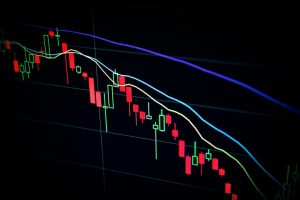Forex and stocks are two of the most popular investment options for investors looking to grow their wealth. While both offer the potential for significant returns, they differ greatly in terms of risk, volatility, and liquidity. In this article, we will explore which has higher returns, forex or stocks, and what factors you should consider when making your investment decisions.
Forex Trading
Forex, also known as foreign exchange trading, involves buying and selling currencies in the global market. The forex market is the largest financial market in the world, with an average daily turnover of over $5 trillion.
The potential returns in forex trading can be significant, with traders able to take advantage of leverage to amplify their gains. However, this also means that losses can be equally significant if the market moves against them.
One of the biggest advantages of forex trading is its 24-hour trading cycle, which allows traders to take advantage of global markets around the clock. Additionally, the forex market is highly liquid, offering traders the ability to enter and exit positions quickly and at any time.
Stock Trading
Stock trading involves buying and selling shares of publicly traded companies on stock exchanges. The potential returns in stock trading can also be significant, with investors able to profit from both capital gains and dividend payments.
Unlike forex trading, the stock market operates on a fixed schedule, with trading hours typically limited to weekdays during business hours. Additionally, stocks can be less liquid than forex, with certain stocks experiencing low trading volumes and wider bid-ask spreads.
Factors to Consider
When deciding whether to invest in forex or stocks, there are several factors that you should consider. These include:
Risk Tolerance: Forex trading is generally considered to be riskier than stock trading due to the potential for significant losses. As a result, you should consider your risk tolerance before deciding which investment option is right for you.
Volatility: Both forex and stocks can be volatile, but forex tends to experience more extreme price swings due to its high leverage. If you are comfortable with high levels of volatility, forex may be a good option for you.
Liquidity: Forex is generally more liquid than stocks, which can make it easier to enter and exit positions quickly. However, this liquidity can also make the market more susceptible to price manipulation.
Market Knowledge: To succeed in either forex or stock trading, you need to have a solid understanding of the market and its underlying fundamentals. This requires ongoing research and analysis to stay up-to-date on market trends and events.
Conclusion
In conclusion, the decision of whether to invest in forex or stocks ultimately comes down to your individual investment goals, risk tolerance, and market knowledge. While forex trading can offer higher potential returns, it also comes with higher levels of risk and volatility. On the other hand, stock trading can offer more stable returns but with lower potential gains.
Ultimately, the best investment strategy will depend on your individual circumstances and goals. It is important to do your research and seek out professional advice before making any investment decisions.





